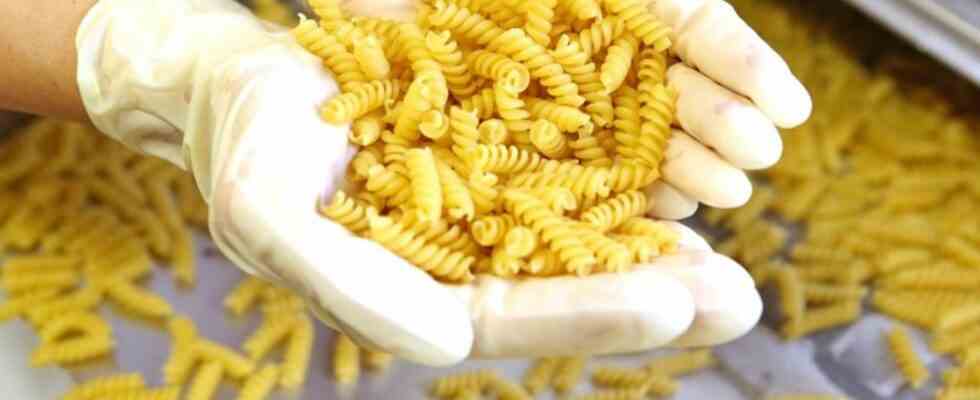Food
German pasta manufacturers are struggling with high costs and increasing prices
Noodles are made from durum wheat semolina. Unlike soft wheat, Germany is dependent on imports of durum wheat. Photo: Jan Woitas/dpa
© dpa-infocom GmbH
The Ukraine war has consequences for pasta manufacturers in Germany. Their costs for raw materials, energy and logistics are increasing. Consumers have to adjust to rising prices.
According to the Grain, Milling and Starch Industry Association (VGMS), the war in Ukraine has had a massive impact on pasta manufacturers in Germany.
The war had exacerbated the already tense situation caused by the corona pandemic, Peter Haarbeck, Managing Director of the VGMS, told the German Press Agency.
Energy supply, raw material procurement, packaging and logistics are affected. According to Haarbeck, the companies would have to take the increased costs into account when setting their prices, otherwise they would not be able to continue to exist. He cannot say how high the price increases will be in the end.
“Since we already have to pay higher prices for our high-quality raw materials, a price increase is unavoidable,” said a spokeswoman for the Swabian Maultaschen and Spätzle producer Bürger. The company from Ditzingen (Ludwigsburg district) is currently in price negotiations with its trading partners. Raw materials, packaging materials, but also the transport costs increased extremely. According to the spokeswoman, suppliers are currently no longer able to supply citizens on the agreed terms.
Mike Hennig, Managing Director of Pasta Riesa, paints a similar picture. The conflict in Ukraine and the associated economic impact dramatically dramatized the current situation. The company from Riesa (Meissen district) will have to react to current developments in order to survive the crisis. “Our customers and consumers have to reckon with higher food prices,” says Managing Director Hennig.
Noodles are made from durum wheat semolina, explained VGMS Managing Director Haarbeck. Unlike soft wheat, Germany relies on imports of durum wheat. However, Russia and Ukraine did not play a major role in the global supply of durum wheat. Nevertheless, there are problems with the supply of durum wheat. For example, the harvest in Canada, the most important exporter, fell sharply last year after a very hot and dry summer. The general uncertainty on the raw material markets and the high demand for grain as a whole have now also caused the price of durum wheat to rise – although not by far as much as that of soft wheat.
At the moment, pasta manufacturers can hardly keep up with the demand from the retail trade. “As at the beginning of the pandemic, people buy large quantities of pasta because they can be stored very well,” said Haarbeck. The supply is guaranteed, but if people buy far more than they need to, it pushes the logistics from the manufacturers to the supermarket to the limit of their capacities.

